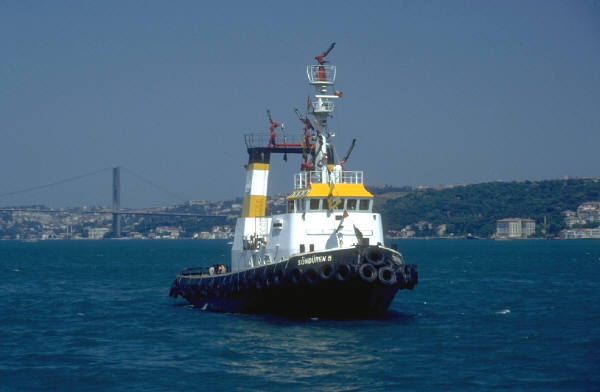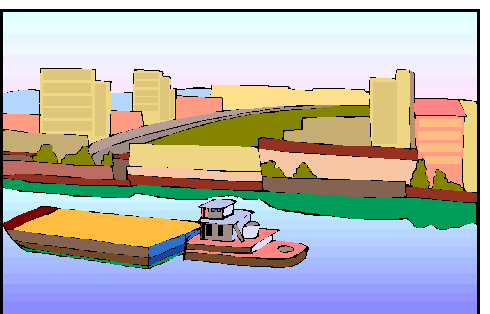Case No. DMC/S&T/09/01
Smit International (Deutschland) GmbH v. Josef Mobius, Bau-Gesellschaft (GmbH
& Co)
English High Court, Queen’s Bench Division, Commercial Court: Morrison. J:
June 2001: Unreported
TOWAGE CONTRACT: BIMCO TOWHIRE CONDITIONS: DAMAGE ARISING FROM ACCIDENT INVOLVING TOW: THIRD PARTY CLAIMS: UNSEAWORTHINESS OF TUG: KNOCK FOR KNOCK AGREEMENTS: CONVENTION ON LIMITATION FOR MARINE CLAIMS: MERCHANT SHIPPING ACT 1995: APPLICATION TO KNOCK-FOR-KNOCK AGREEMENTS
Summary
In relation to a claim for indemnity under the BIMCO TOWHIRE conditions, the question whether or not the claimant’s vessel was seaworthy was not relevant to the operation of the knock-for-knock agreement contained in those conditions. Nor was a claim under the knock-for –knock agreement itself limited by the Convention on Limitation for Maritime Claims 1976. However, the question whether limitation had been applied to any third party claim, in respect of which indemnity was sought under that agreement, was relevant in determining whether the claim had been ‘reasonably compromised’, as the agreement required.
DMC Rating Category: Developed
FOR MORE DETAIL, READ ON:
The Facts
Smit had chartered one of their tugs to Mobius for 6 months operations in the Kiel Canal under BIMCO TOWHIRE conditions. In March 2000, whilst the tug was towing one of Mobius’ barges, the tow came into contact with a dredger belonging to a third party. The third party claimed damages from Smit, which compromised the claim and then claimed indemnity from Mobius under the TOWHIRE conditions. Mobius, on the other hand, claimed from Smit for the damages to the barge and for loss of its use whilst it was under repair.
The relevant clauses of the TOWHIRE conditions were the following:
"12. Tow-worthiness of the Tow
(a) The Hirer shall exercise due diligence to ensure that the Tow shall, at
the commencement of the towage, be in all respects fit to be towed from the
place of departure to the place of destination….
13. Seaworthiness of the Tug

The Tugowner will exercise due diligence to tender the Tug at the place of
departure in a seaworthy condition and in all respects ready to perform the
towage, but the Tugowner gives no other warranties, express or implied.
18. Liabilities
2(b) The following shall be for the sole account of the Hirer without any
recourse to the Tugowner, his servants or agents, whether or not the same is due
to breach of contract, negligence or any fault on the part of the Tugowner, his
servants or agents:
(i) Loss or damage of whatsoever nature howsoever caused to or sustained by
the Tow.
(ii) Loss or damage of whatsoever nature caused to or suffered by third
parties or their property by reason of contact with the Tow or obstruction
created by the presence of the Tow.
(iii) Loss or damage of whatsoever nature suffered by the Hirer or by third
parties in consequence of the loss or damage referred to in (i) and (ii) above.
The Hirer will indemnify the Tugowner in respect of any liability adjudged to
be due to a third party or any claim by a third party reasonably compromised
arising out of any such loss or damage but the Hirer shall not in any
circumstances be liable for any loss or damage suffered by the Tugowner or
caused to or sustained by the Tug in consequence of loss or damage, howsoever
caused to or sustained by the Tow.
[Clause 18.2(a) contained reciprocal provisions in favour of the Hirer]
3. Save for the provisions of clauses 11, 12, 13 and 16 neither the Tugowner
nor the Hirer shall be liable to the other party for loss of profit, loss of
use, loss of production or any other indirect or consequential damage for any
reason whatsoever.
4. Notwithstanding any provisions of this Agreement to the contrary, the
Tugowner shall have the benefit of all limitations of, and exemptions from,
liability accorded to Owners or Chartered Owners of Vessels by any applicable
statute or rule of law for the time being in force and the same benefits are to
apply regardless of the form of signatures given to this Agreement."
The Issues
By a default judgment Smit had obtained declarations that:
(a) they were entitled to be indemnified by Mobius for the liability that
they had incurred to the third party dredger owners in respect of the collision
involving the tow, and
(b) they were not responsible for the claim of Mobius for the damage
sustained by the tow and loss of its use whilst under repair.

Mobius then applied to set the default judgment aside on two hitherto
untested grounds:
(i) that, by reason of the repeated drunkenness of the Master, the tug was
unseaworthy and
in consequence, Smit could not rely upon the knock-for-knock provisions of
clause 18, and
(ii) that the indemnity claim from Smit should be limited to the amount of
the Tug’s limitation fund under the 1976 Limitation Convention, incorporated
into English law by the Merchant Shipping Act of 1995.
The Judgment
On the first issue raised by Mobius, the Judge found that, both from the
structure of the agreement and its wording, ‘the intention behind the standard
form contract was not to permit seaworthiness arguments to intrude into the
allocation of risk’ set out in clause 18.
On the second issue, the Judge quoted with approval a passage from Rainey’s
‘The Law of Tug and Tow’, in the context of a collision between an innocent
ship and vessels under tow, where the tug and tow are not in common ownership:
"If the tow were alone to blame, the claim would…. be limited by
reference to the tonnage of the tow; and, conversely, were the tug alone
responsible, the limitation would be calculated by reference to the tonnage of
the tug. Where both tug and tow were at fault, each would be able to limit
liability by reference to the tonnage of his tug or tow, as the case might
be."
In this case, the relevant claim for the purposes of applying the Limitation Convention was related to the operation of the tug and not the tow [presumably because the third party claim against Smit had been based on the negligent operation of the tug]. Under the terms of clause 18.2(b) however, Smit were entitled to a full indemnity, since the limitation provision was not incorporated into that clause. ‘The tow is protected to the extent that the third party’s claim may be limited to the tug’s tonnage and the Hirer is only liable for the amount of a claim which has been reasonably settled. Thus, if the tug unreasonably refused to limit the claim by reference to the tug’s tonnage, that could provide a defence.’
The judge did not accept that clause 18.4 represented an exclusion of the limitation legislation so far as the tow was concerned. ‘Express words would be required’ to achieve such a result. ‘In my view, clause 18.4 is emphasising that where the third party damage can be limited by reference the tonnage of the tug then it should be, whichever of the two parties is actually handling the third party claim.’